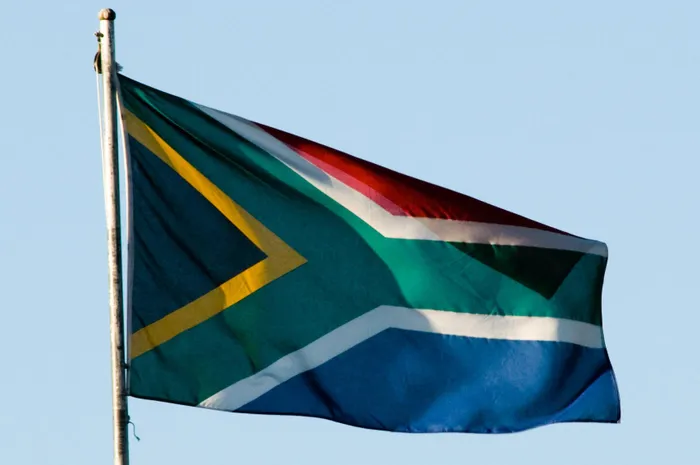Treasury trims 2025 growth outlook, pins hopes on reforms to lift long-term momentum
MTBPS

Finance Minister Enoch Godongwana said South Africa’s growth prospects are being shaped by both domestic challenges and external pressures, including slowing global trade and geopolitical tensions.
Image: File
The National Treasury has revised South Africa’s economic growth forecast for 2025 downward, citing weaker global and domestic conditions, but remains optimistic that ongoing structural reforms in energy and logistics will help the economy gain traction in the coming years.
In its the Medium-Term Budget Policy Statement (MTBPS) tabled on Wednesday, Treasury said it now expects real gross domestic product (GDP) growth of 1.2% in 2025, down from 1.4% projected in February.
The revision follows weaker-than-expected performance in the first half of the year, subdued consumer and business confidence, and a fragile global recovery.
Despite the downgrade, the 2025 forecast still marks a recovery from the 0.5% growth recorded in 2024, with Treasury projecting an improvement to 1.8% on average between 2026 and 2028 as reform momentum builds and infrastructure investment strengthens.
Finance Minister Enoch Godongwana said South Africa’s growth prospects are being shaped by both domestic challenges and external pressures, including slowing global trade and geopolitical tensions.
“Domestically, we forecast real GDP growth of 1.2% for 2025, more than double the economic growth in 2024. The growth outlook strengthens moderately over the medium term,” Godongwana said.
“The structural reforms we have embarked on, particularly in energy and logistics, will be key to lifting our rate of growth closer to levels demanded by our developmental needs.”
Godongwana said Treasury’s approach to faster, more sustainable growth continues to rest on four key pillars: macroeconomic stability, structural reform, building state capability, and supporting growth-enhancing infrastructure.
He added that while global growth is expected to ease slightly to 3.2% in 2025, trade tensions, rising protectionism, and lingering supply chain disruptions continue to pose risks.
“The shocks of the unilateral tariffs imposed by the United States have not materialised as severely as expected,” he said. “But their delayed effects, coupled with rising protectionism, pose future risks to global productivity and price stability.”
Godongwana noted that while global equity markets have surged on the back of AI-related stocks and monetary easing, “this rally carries the risk of sudden reversals.”
He stressed the importance of deepening regional trade and cooperation, particularly through the African Continental Free Trade Area (AfCFTA) and South Africa’s G20 presidency, to strengthen Africa’s growth and resilience.
Npnetheless, economists welcomed Treasury’s cautious yet reform-driven outlook.
North West University's Business School economist, Prof Raymond Parsons, said the MTBPS acknowledged that “all roads ultimately lead through higher, job-rich growth.”
However, Parsons warned that projected growth of 1.8% between 2026 and 2028 remains insufficient to tackle South Africa’s deep structural and socio-economic challenges.
“The overarching message of the MTBPS is that accelerated structural reforms remain the most effective pathway to much higher, job-rich growth,” Parsons said.
“Implementation will be key — ensuring that commitments under Operation Vulindlela and other processes translate into tangible improvements in confidence, investment, and service delivery.
“The MTBPS represents a visible turning point in advancing thepriorities of a stable, growing, competitive, and inclusive economy. Policy continues to gradually move in the right direction to build resilience, create fiscal buffers, and stabilize public indebtedness amid adverse global headwinds.”
Parsons said that while fiscal sustainability is gradually improving, questions remain over whether stronger revenue performance will be enough to offset potential tax increases of around R20 billion signalled for the February 2026 Budget.
Frederick Mitchell, chief economist at Aluma Capital, said Godongwana’s reaffirmation of Operation Vulindlela’s second phase was a crucial step.
“These reforms are critical for accelerating inclusive growth and tackling infrastructure bottlenecks, be it water, rail, or ports,” Mitchell said.
“Port capacity remains a particular concern, causing international trade backlogs that hinder competitiveness. Without resolving these issues, growth will remain constrained.”
Mitchell added that while short-term forecasts have been trimmed, the medium-term nominal growth projection of around 8% reflects a degree of optimism that structural reform, investment partnerships, and policy stability could unlock greater economic potential.
BUSINESS REPORT